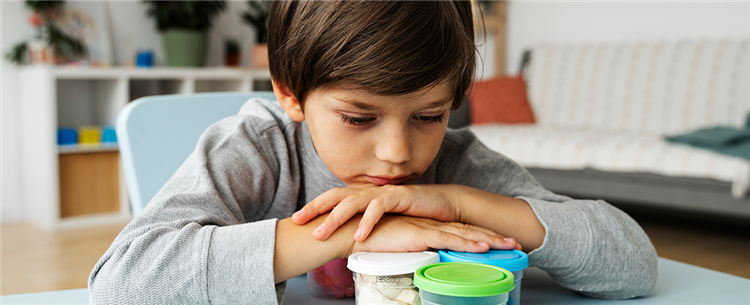- info@brightkidspreschool.com

What is Resilience?
Resilience is defined as the ability of individuals to cope with difficulties and adapt to stressful situations, learning and growing from challenging experiences. Developing the capacity to handle various challenges life presents is crucial for children's overall well-being and long-term success from childhood to adulthood.Resilience is an important skill not only in times of crisis but also in handling everyday obstacles. Individuals have an inherent ability to recover from difficult experiences.However, resilience skills are also influenced by personality traits and interactions with the environment from infancy. Research suggests that children who grow up with sensitive and supportive caregivers from birth may have stronger resilience skills.
How Can Resilience Be Developed from Birth?
The preschool period is a critical time when children's character and personality traits are formed. During this period, there are various measures and strategies that parents can adopt to develop their children's resilience skills:
1. Establishing Secure Attachment Relationships:
Children feel safe when they have a secure bond with their parents. Secure attachment helps children build self-confidence and improve their ability to handle challenges. Parents showing a responsive, loving, and supportive approach supports this secure attachment. For example, saying, "Even if you’ve upset me, remember that I love you. I am always here for you," can help build a loving and secure relationship with your child.
2. Encouraging Self-Efficacy and Problem-Solving Skills:
Children develop a sense of self-efficacy when they find opportunities to solve problems on their own. Help them accomplish simple tasks and praise their small successes. This increases their confidence in their abilities. This can be reflected with a simple phrase like, "I know you can solve this puzzle, I will help you. How about trying?"
3. Teaching Emotional Regulation Skills:
Teaching children to recognize and express their emotions helps them manage stress. For example, you can show them various breathing exercises and relaxation techniques to manage emotional responses. An example could be, "When I get very angry, I close my eyes and imagine I am smelling a flower and blowing out a candle. You can do this too."
4. Promoting Optimism and Positive Thinking:
Instilling positive thinking habits helps children adopt a more optimistic attitude when facing difficulties. Trying to find a positive aspect in every situation can enhance children’s resilience.
5. Developing Social Skills:
Social skills enable children to communicate effectively with others and receive social support. Games and group activities can help children develop their social skills.
How Can We as Parents Develop Our Child’s Resilience Skills?
1. Be a Role Model: Children view their parents as role models. Display your resilience abilities; sharing your methods for coping with stressful situations
can help your children learn these skills.
2. Maintain a Calm and Supportive Attitude: Trying to stay calm in difficult situations and seeking solutions can provide your child with a guide for how to
handle similar situations. Children observe their parents’ reactions and tend to mimic these behaviors.
3. Effective Communication and Connection: Spending quality time with your children and meeting their emotional needs is very important. Listening with curiosity to their experiences and asking for their opinions can help build a genuine and fulfilling relationship. Strong connections like these help children feel secure.
4. Provide Feedback: Offer your children opportunities to complete various tasks. Supporting them with positive feedback during this process helps develop their sense of self-efficacy. Emphasizing the importance of effort and perseverance, even in the face of failure, can support the development of their resilience skills.
5. Celebrate Small Successes: Celebrate every small achievement of your children. This increases their self-confidence and strengthens their ability to handle challenges.
The preschool period offers a significant opportunity for developing resilience skills in children. As parents, while we may wish for our children to always be happy and carefree, trying to shield them from stress and disappointments limits their ability to build resilience and psychological strength. Instead, being a supportive presence
during their challenging experiences, allowing them to experience their emotions, and actively contributing to their development of resilience skills can be highly beneficial. We should actively play a role in helping our children develop secure attachment, self-efficacy, emotional regulation, positive thinking, and social skills. These approaches can help children enhance their resilience against life’s challenges and become successful individuals.
To contribute to your child's resilience skills, you might consider reviewing the following resources.
? The Resilience Workbook for Kids: Fun CBT Activities to Help You Bounce Back from Stress and Grow from Challenges
igloobooks - Caren Baruch-Feldman PhD - Rebecca Comizio MA MEd
? Resilience: A book to encourage resilience, persistence and to help children bounce back from challenges and adversity
by Jayneen Sanders
We Will Call You For More Information
Please leave your contact information and we will contact you shortly
